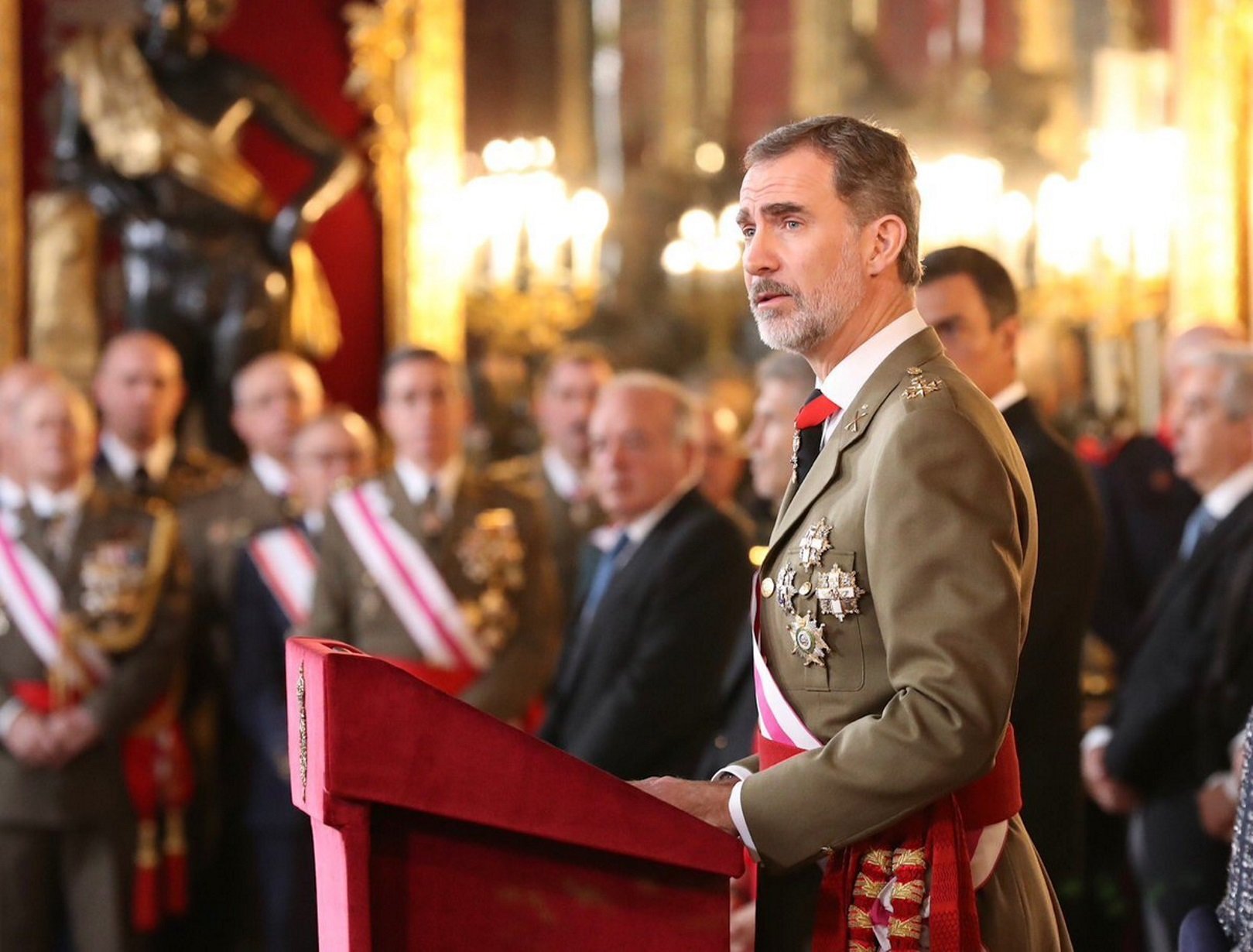Spain's military has to make the "values the Constitution defends" its own. That's what Felipe VI has said this Epiphany Sunday during the annual Pascua Militar parade, the first with Pedro Sánchez as prime minister. Before the high command of the armed forces, in a speech which avoided any explicit reference to the Catalan crisis, the king gave an ode to the Spanish flag as a symbol of "unity" and "integrity". He did so just weeks after comedian Dani Mateo was summonsed to court after blowing his nose on the flag in a sketch.
In the throne room of Madrid's Royal Palace, in a ceremony also attended by the defence and interior ministers, Margarita Robles and Fernando Grande-Marlaska, the monarch defended the Spanish flag as a "symbol of sovereignty, independence, unity and integrity". 175 years after it was officially adopted, he added that it "reflects our confidence in the future and the desire to construct a free and democratic society".
But the anniversary that marked this year's Pascua Militar was the 40th anniversary of the Spanish Constitution, celebrated on 6th December last year. The king defended the process of democratising the armed forces with the transition following the end of the Franco regime. "These 40 years of democracy couldn't be understood without recognising the profound identification with the Constitution of the members of the armed forces, the security services and the intelligence services," he said.
Before Felipe VI, defence minister Margarita Robles gave her first Pascua Militar speech. She noted that the armed forces are the "principal guarantors of constitutional order". She also, however, avoided any direct reference to Catalonia and called for the army to stay away from "partisanships".
The Pascua Militar, which marks the beginning of the military year, is a ceremony instated by king Charles III (reigned 1759–1788) after Spanish troops recovered the Menorcan town of Maó from British hands on 6th January 1782. This year's ceremony was again marked by the absence of former monarchs Juan Carlos I and Sofía. Juan Carlos has only attended once, in 2018, since his abdication. The ceremony is an opportunity to evaluate the previous year and to set the objectives for the new one. It ended with a "viva España" (long live Spain) from Felipe VI, followed by a "viva el Rey" (long live the king) from the assembled servicemen and women.

